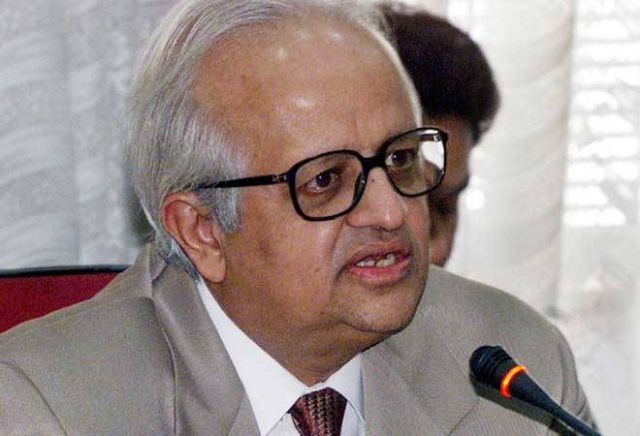
by Editor | May 25, 2021 | Interviews

Bimal Jalan
By Biswajit Choudhury,
New Delhi : The sharply depreciating rupee amidst rising global oil prices and the massive foreign funds outflow from the capital market are not crises comparable to the likes of the balance of payments (BoP) emergency India experienced in 1991 because the country’s fundamentals are stronger than before, its BoP is strong and it has one of the highest levels of foreign exchange reserves, says former RBI Governor Bimal Jalan.
On the Reserve Bank of India (RBI) refusing to raise its key lending rate in October as a way to counter the falling rupee and the fund outflows, Jalan told IANS in an interview that in setting its interest rates the central bank’s monetary policy committee has its own set of considerations like inflation, growth and the global economic scenario.
Instead, Jalan, also a former Finance Secretary and Chairman of the Prime Minister’s Economic Advisory Council, says in his latest book — “India Ahead 2025 and Beyond” — that though the country’s fundamentals are much stronger today, it faces several old and new challenges in the area of politics, economics and governance.
“What is happening to the rupee is not a crisis… it is not a situation like in 1991 when we had a grave balance of payments situation. Now we have a much better ability to intervene, the economy has high capacity, we have hi-technology… our fundamentals are strong,” he said in reply to a question.
On the ongoing sharp foreign fund outflows from the capital market, Jalan pointed to the earlier flush of inflows in the preceding period.
“Financially we are in a much stronger position now than, for instance, we were during the Asian financial crisis in the nineties. We were able to handle that crisis, and we can handle this outflow situation now,” he said.
The Asian financial crisis was a sequence of currency devaluations and other events that began in mid-1997 and spread through many Asian markets. The currency markets first failed in Thailand and the contagion spread rapidly throughout Southeast Asia, in turn causing stock market declines and reduced import revenues.
On the other hand, the former Governor pointed to the need for reform in the wider area of political economy as elaborated in his latest book, which would include strengthening the prudential, provisioning and capitalisation norms of state-run banks to bring them in line with the best international standards and reduce the possibilities of future financial crises.
The accumulated non-performing assets (NPAs), or bad loans of banks, which have crossed a staggering Rs 10 lakh crore, are a matter of great concern, he writes.
“PSBs (public sector banks) have to decentralise. Banks report now to the government, which should withdraw from the actual day-to-day governance of banks,” Jalan said.
“The government should restrict its role to deciding on policy and monitoring the performance of banks. It has to decide to do this reform.”
He pointed out that some reform measures, like the RBI’s Prompt Corrective Action (PCA) framework for banks and enactment of the Insolvency and Bankruptcy Code (IBC), had been initiated to deal with the NPA crisis which had provoked risk-aversion among banks and has been accompanied by a significant decline in private corporate revenues and investment.
“All these measures could have been taken a little earlier… one or two years ago,” he said.
Declining to comment on the RBI-government relations, Jalan, instead, drew attention to the many old and new challenges in the areas of politics economics and governance that the country faces which are the focus of his book.
“These can only be met if we are able to generate sufficient political will to pursue the right policies and shake off the dead weight of the past,” he said.
The RBI has recently underlined the importance of its autonomy and warned that the government’s focus on short-term goals could be harmful to the economy.
At a public lecture in Mumbai last week, RBI Deputy Governor Viral Acharya said undermining the regulator’s independence could be “catastrophic”, citing the examples Argentina’s former central bank chief, who resigned following a dispute over the transfer of reserves, and the recent criticism of their central banks’ actions by the US and Turkish Presidents.
Finance Minister Arun Jaitley retaliated by alleging that the central bank looked the other way when indiscriminate lending happened between 2008 and 2014 leading to the NPA crisis.
Media reports earlier this week said that the government has invoked Section 7 of the RBI Act that empowers it to consult and direct the RBI to act on issues that it considers necessary in public interest.
Facing criticism for invoking a hitherto unused section to issue instructions to the RBI, the government on Wednesday said that it respected the autonomy of the central bank but within the framework of the RBI Act.
(Biswajit Choudhury can be reached at biswajit.c@ians.in)
—IANS
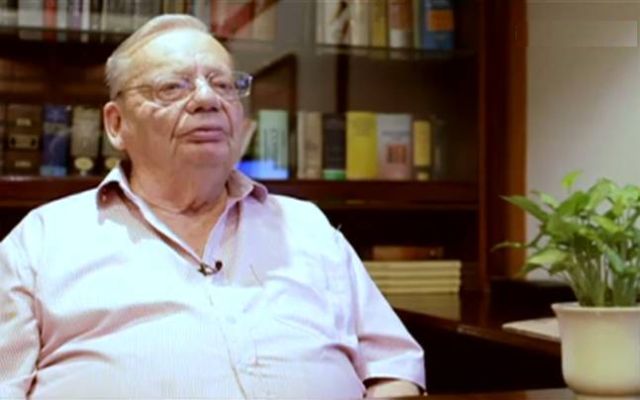
by Editor | May 25, 2021 | Interviews

Ruskin Bond
By Sugandha Rawal,
New Delhi : Ruskin Bond feels lucky to live in India. The celebrated author says there is more freedom for writers in India despite various conflicts and occasional turmoil.
“If you think of the world in the present circumstances, how borders change and conflicts are constantly erupting in the world, it is not a peaceful universe as it was before,” Bond told IANS in an email interview when asked about his relationship with the country.
“I find it very lucky to be an Indian and living in India. That is the one reason I am never attracted to going abroad or settling in any other country because in spite of various conflicts and occasional turmoil, compared to other countries, you would find more freedom and topics for a writer in India,” added the author of British descent.
Bond, who was associated with Landmark’s Child Reading to Child initiative for the fourth time this year, continued: “Suppose you were a writer in China and you go and sit to write on Great Wall of China, somebody would come in and take you away…go down the list of various countries, you will find that living in Europe is very dull.”
“If you live in America, you need a gun and I am not very fast with a gun, so I think I would walk out very quickly. So, I think it’s much better here if you compare it to other lands.”
Born in Kasauli in what is now Himachal Pradesh, Bond grew up in Dehradun, New Delhi and Shimla. He then spent four years in London as a young man, only to return to India in 1955. He has been staying at Ivy Cottage in Landour since 1981.
Starting his journey as a writer with his first book at the age of 17, Bond has spent 68 years giving words to his thoughts, creating a collection of over a hundred novellas, short stories, non-fiction and poetry books.
Looking back, Bond said: “I was a bookworm in school and in those days it was easy to get books. Bigger cities had book shops. Also, I had a very lonely childhood so I had turned to books at an early age and they were a great help and by the time I had finished school I had decided that this is what I want to do.”
And he feels he “didn’t do badly”.
“I started wanting to become a well-known writer and today I have lots of readers. It took a long time but it came about. So if you do have a dream, something you want to do very much in your life it will come about if you persist.
“If you keep that vision in mind and the desire within you, you have to work towards it, you just can’t sit back and expect everything to come to you. You have to work towards it as for some people it might come very quickly and for some it may take a lifetime.”
But success can’t come at the cost of quality.
“I see that a lot of people are rushing through. They just want to see their name on the book. The other day, there was a book launch and was self-published by an author and the writer had simple grammatical errors, even the sentences hadn’t been rightly put together. Nobody would ever enjoy reading that book. There was no fluency. So the language is all important to begin with,” said the 84-year-old.
He has spent many years spreading happiness with his stories, and garnered appreciation from all quarters. He is determined to not let age slow him down.
“There will always be books as long as I am mentally capable of it,” said the author, who has been bestowed the Sahitya Akademi Award for English Writing, as well as the Padma Bhushan and the Padma Shri, the country’s third and fourth highest civilian awards.
“I am done and nearly finished with a book on trees, flowers and plants. It’s not a scientific book. I will do another and finish a story of me being a goal keeper. A lot of people think I am a good writer and praise me, but no one praises me for being a goal keeper and in this book I am going to praise myself as a goal keeper. And then what else, I would see how it goes.”
(Sugandha Rawal can be contacted at sugandha.r@ians.in)
—IANS
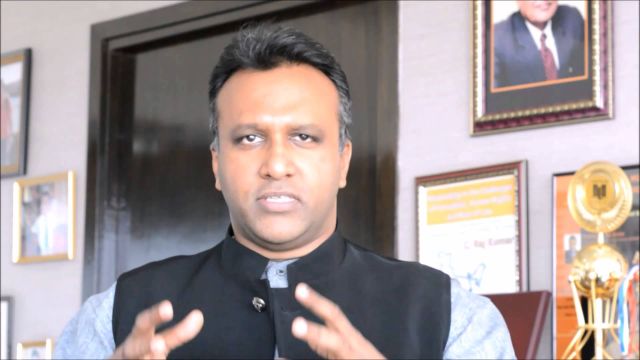
by Editor | May 25, 2021 | Corporate, Corporate Governance, Interviews

Vice chancellor Professor C. Raj Kumar
By Gokul Bhagabati,
New Delhi : With higher education institutions in India, barring a handful struggling to make a mark at the global level, Vice chancellor of O.P. Jindal Global University (JGU) in Sonipat, Haryana, Professor C. Raj Kumar, is vouching for greater engagement from the private sector to improve both quality and access to higher education in India.
Professor Kumar — Rhodes scholar at the University of Oxford, where he obtained his Bachelor of Civil Law (B.C.L.) degree; and a Landon Gammon Fellow at the Harvard Law School — became the founding VC of the university in 2009 and, in the nine years since, he has guided the institution to rank among the top 450 universities in Asia, as per the QS Asia University Rankings 2019.
In an email interview with IANS, he sheds light on how the higher education system is burdened by over-regulation and why more corporates and high net worth individuals should come forward to support the government in making India a preferred global destination for pursuing higher education and research.
Q: What is ailing India’s higher education system? What kind of reforms, according to you, can improve the system?
A: The Indian higher education system is over-regulated and under-governed. This is evident in recent government policies that aim to reduce regulatory oversight through initiatives such as Graded Autonomy for well-performing institutions, and the Institutions of Eminence project that will allow for selected institutions to self-regulate on key aspects such as recruitment, admissions and collaborations. However, given the gap in scale, access and relative quality of higher education in the country, further reforms are urgently needed to match the rapid expansion of the sector with performance and quality. We also need greater engagement from private actors, including from industry, to promote quality in higher education.
Q: What is stopping private universities in India from becoming world-class universities?
A: If one were to look at the parameters on which international ranking agencies such as THE (Times Higher Education), QS (Quacquarelli Symonds) and ARWU (Academic Ranking of World Universities) operate, one would notice common metrics such as research, reputation and internationalisation. Indian universities primarily focus on teaching and less on research. Secondly, functions of internationalisation (i.e. hiring of foreign faculty members, admitting foreign students and building student mobility programmes) within higher education institutions are currently over-regulated by the government. For private universities to flourish, there needs to be greater balance between government oversight, functional autonomy and a diversified funding ecosystem within the country for such institutions.
Q: How can Indian universities improve rankings in list of the world’s top universities?
A: Indian universities need to prioritise research impact and outcomes. There is greater need for funding in Indian universities, which ought to come from both public and private sources. Secondly, the regulations that encumber the internationalisation efforts of universities need to be eased. Universities need to be encouraged to promote all forms of internationalisation. We need to create an ecosystem in which students from other parts of the world should desire to study in India just as we create opportunities for student mobility programmes where Indian students go abroad for various short- and long-term programmes. All of this will require greater support from the government and private actors.
Q: What measures should India put in place to improve access to higher education among the underprivileged?
A: While public universities now provide the broadest access to students from under-represented and disadvantaged communities, private higher education institutions need to play a far greater role in expanding access to quality higher education in India. The higher education sector is yet to see meaningful private participation in a not-for-profit mode where corporates and high net worth individuals support access to quality higher education. O.P. Jindal Global University is a stellar example of private, not-for-profit and corporate philanthropy in higher education. Unfortunately, for a large country like India, there are very few such examples and we need more of them.
Q: What role do you see for universities in shaping the future of the nation?
A: A nation is built on the basis of its people and, indeed, institutions. Visionaries who inspire others and change the way of doing things are critical in every effort to build a nation. In order for our citizens to dream, aspire and inspire, there needs to be greater imagination and efforts in creating enabling and inspiring environments in the form of university spaces where teaching, learning and research can happen. Institution-building is central to nation-building and that is how we can create an enabling environment for the future.
(Gokul Bhagabati can be contacted at gokul.b@ians.in)
—IANS
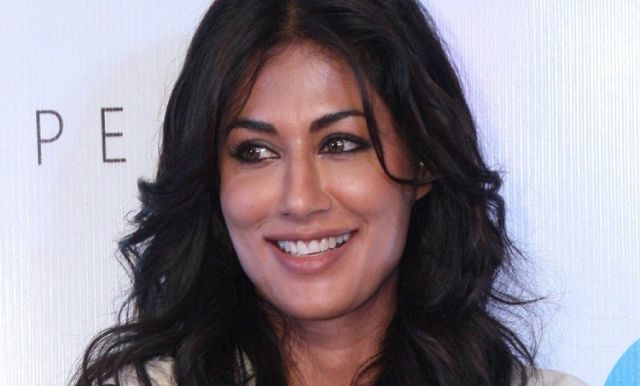
by Editor | May 25, 2021 | Interviews

Chitrangada Singh
By Sugandha Rawal,
New Delhi : Chitrangada Singh feels the #MeToo movement is not about bashing men, and not at all a battlefield for genders. The actress says it is about making society safe for all.
“The beginning of every change is when we start talking about it. And the talk has started. Realistically speaking, there is a huge difference in Western society and us. Just because we watch English shows and movies doesn’t make us that society.
“There is a difference in our society and in our thought process, and that is the reason why we can’t have a similar #MeToo movement in India,” Chitrangada told IANS in a recorded response.
“I want to quote Tanushree Dutta here. She was was right in saying that for a #MeToo movement to happen, society has to create that atmosphere. We need to be ready in our intent, not just an idea,” added the actress, who has got associated with unique food-based show “AXN Ultimate Cook-Off — The Marriott International Challenge”.
The actress feels men and women need to come together to bring about change.
“I don’t think any movement works with just one gender going on about it, till the time the other gender doesn’t come and stand next to you. Until the time the men in our society don’t feel that it is their responsibility to come and stand next to that woman and make her feel safe, it (the impact of #MeToo) is very difficult.”
Chitrangada stressed that “it is not at all about men versus woman”.
“It is about making our society safe. It is not male bashing at all. #MeToo movement is for men as well.”
After making quite an impact in the West, the #MeToo wave has swept into Bollywood and beyond following Tanushree revisiting an unpleasant episode with veteran actor Nana Patekar on the sets of “Horn ‘OK’ Pleassss” in 2008.
It has brought out many dark truths from the world of Bollywood, with women coming out to name and shame their predators. Big names like Vikas Bahl, Chetan Bhagat, Gursimran Khamba, Kailash Kher, Rajat Kapoor, Alok Nath, Anu Malik and Sajid Khan have have been named for using their position to exploit the vulnerable.
Chitrangada, who has worked in the film “Inkaar”, which was based on sexual harassment at the work place, supported Tanushree.
“I believe her. I want to hear what Nana has to say. But my only take on this… and I am not only saying this for Tanushree… is that if there is truth, then it must be heard. It doesn’t matter whether she came out after three years or five years or ten years.”
“If there was rape or molestation or any kind of harassment — whether it happened now or five years before, and if the person is choosing to talk about it now, you have to listen to her. It doesn’t make that rape or molestation or assault or harassment any less,” added the actress who had herself walked out of “Babumoshai Bandookbaaz” citing discomfort shooting intimate scenes with co-star Nawazuddin Siddiqui.
What hurts her most in the ongoing debate is when people say: “Tab kyun nahi boli (why didn’t you say then)?”.
“Are you serious? Are you kidding me that you would come up with a return like this? That is shocking and disheartening,” she said.
However, somewhere, she understands the problem behind it.
“It is because somewhere men feel that they need to be defensive. It is not about men versus women. They should feel an ownership of the fact that if she is saying the right thing, we need to stand with her. Just stand with the right.”
Chitrangada feels the onus lies on the media to keep the dialogue on.
“Please don’t make it as a sensational headline and let it pass and move to the next — this is my request to the media.”
On the work front, she is excited about “AXN Ultimate Cook-Off – The Marriott International Challenge”, which marks her first appearance in the English general entertainment channel space.
It showcases a face-off between four celebrated chefs from various brands within Marriott International, with the winning dish set to make it to the menu of more than 100 Marriott International hotels across India. The show is aired on AXN.
(Sugandha Rawal can be contacted at sugandha.r@ians.in)
—IANS
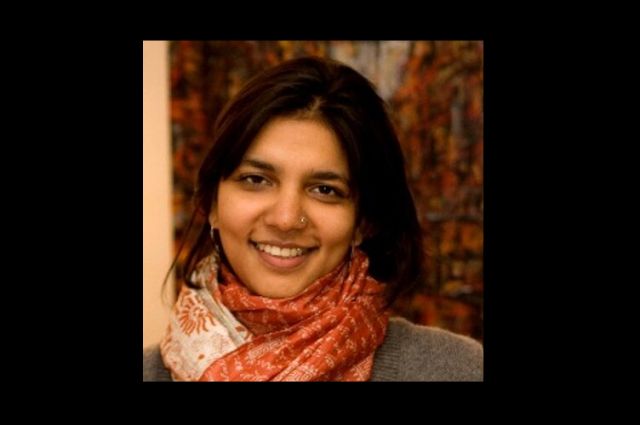
by Editor | May 25, 2021 | Interviews, News

Malvika Maheshwari
By Saket Suman,
New Delhi : Attacks against artistes are happening not just because of “the rise of any particular ideology over the last two-three decades”, nor is it a result of “one or two political parties exploiting communalism or religiosity”. Instead, according to Malvika Maheshwari, whose upcoming book “Art Attacks: Violence and Offence-Taking in India” presents a dismal picture of the turmoil that artistes are facing in the country, it is because of the complicated nature of democracy — where votes ratify power.
“To win and maintain this otherwise unattainable power, political parties over time began to exploit entire energies of their cadres and constituencies, first by persuasion, and, if not, by coercion. This capacity of democracy to both birth and nurture violence as a norm rather than as an exception not just placed severe limits on the imagination of the Constitution’s liberal project but its perversion provided for an entire infrastructure for ‘self-appointed gate-keepers of culture’ that helped them convince themselves and their publics of the value of these attacks,” Maheshwari, an Assistant Professor of political science at Ashoka University, told IANS in an interview.
Her book tells the story of violence against artistes in India, marked by the intensifying sense of insecurity, fear, frustration and anger within the art world. As opposed to simply adding to the prevalent commentaries on violent regulation of free speech in India, “Art Attacks: Violence and Offence-Taking in India” focuses on the dynamics of violence in that regulation.
Maheshwari, who was previously a research associate at the Centre for Policy Research here, said that such attacks are not just a phenomenon of the rise of “anti-liberal” sentiments as much as they are a phenomenon of the perversion of the liberal language.
“A lot of the attacks are justified and ‘performed’ by using statements of righteousness, not simply in the religious sense, even if they act in religion’s name, but rather through a morally-charged language of rights, respect, and justice, a language through which they hope to legitimise this violence. The attacks show how much this language has travelled, been copied and manipulated, for instance, through the tussle inherent in the arrangement and prioritisation of free speech over equal respect or dignity,” she added.
She stressed that there are individuals at the forefront of these attacks, those who “physically assault and vandalise”. She said that they come from “a particular social and economic class” and these attacks become a way for them “to resolve anxieties around status, recognition and respect”.
“It enables them to separate themselves from those of their own social group, but also distinguish themselves from their colleagues in their organisations, of which they are part themselves. Most importantly, these men are deeply informed by the glory and success that violent actions in the past may have brought to their leaders.
“So we need to understand that this form of collective violence is dependent on democracy’s rhetoric and processes, and even while being ‘anti-democratic’, they cannot be regarded simply as a deterrent to its routines. It needs also to be contextualised: Given that generally the outbursts of violence — public and private — in its many avatars have not so much been aberrations of India’s democracy as much as its very condition,” Maheshwari contended.
She added that in the last few decades, since these attacks have been on the rise, the context and the pattern of these attacks have undergone many changes. The violence of “offence-taking”, she said, is much more normalised today than it used to be.
Asked of her findings on the “rising culture of offence-taking in India”, Maheshwari shared four core aspects. She maintained that we have “a political culture that is deeply and seemingly irreversibly rooted in criminality, communalism and populism”.
She said that the phenomenon of “recurring attacks could not have found its ground without the expansion of electronic media, and its enhancement through private capital”. Maheshwari contended that it is “absolutely critical to focus on the micro politics of offence-taking and violence” — to understand how it becomes attractive for ordinary citizens, what for them are the motivations and risks involved.
“…very importantly, I do not see these attacks, vandalism and destruction of artworks necessarily as iconoclasm, underlined by its straightforward intention to forcefully and completely erase or annihilate. Most artworks and artists, after the attacks, acquire far greater visibility than before, often at the behest of the attackers themselves.
“What comes across very clearly in my interactions with them is that they see these attacks on art as investment, which inevitably leads to a generation of many more and new images and responses, offering many more opportunities of the kind and keeps the cycle going. As I mention in the book, censorship here is at the most a gratifying by-product, not a goal accomplished. Their interest lies not in what the artwork is about, but what the attacks can make happen,” she said.
To be published by Oxford University Press India in November, “Art Attacks: Violence and Offence-Taking in India” is a result of eight years of exhaustive research and writing.
(Saket Suman can be contacted at saket.s@ians.in)
—IANS





